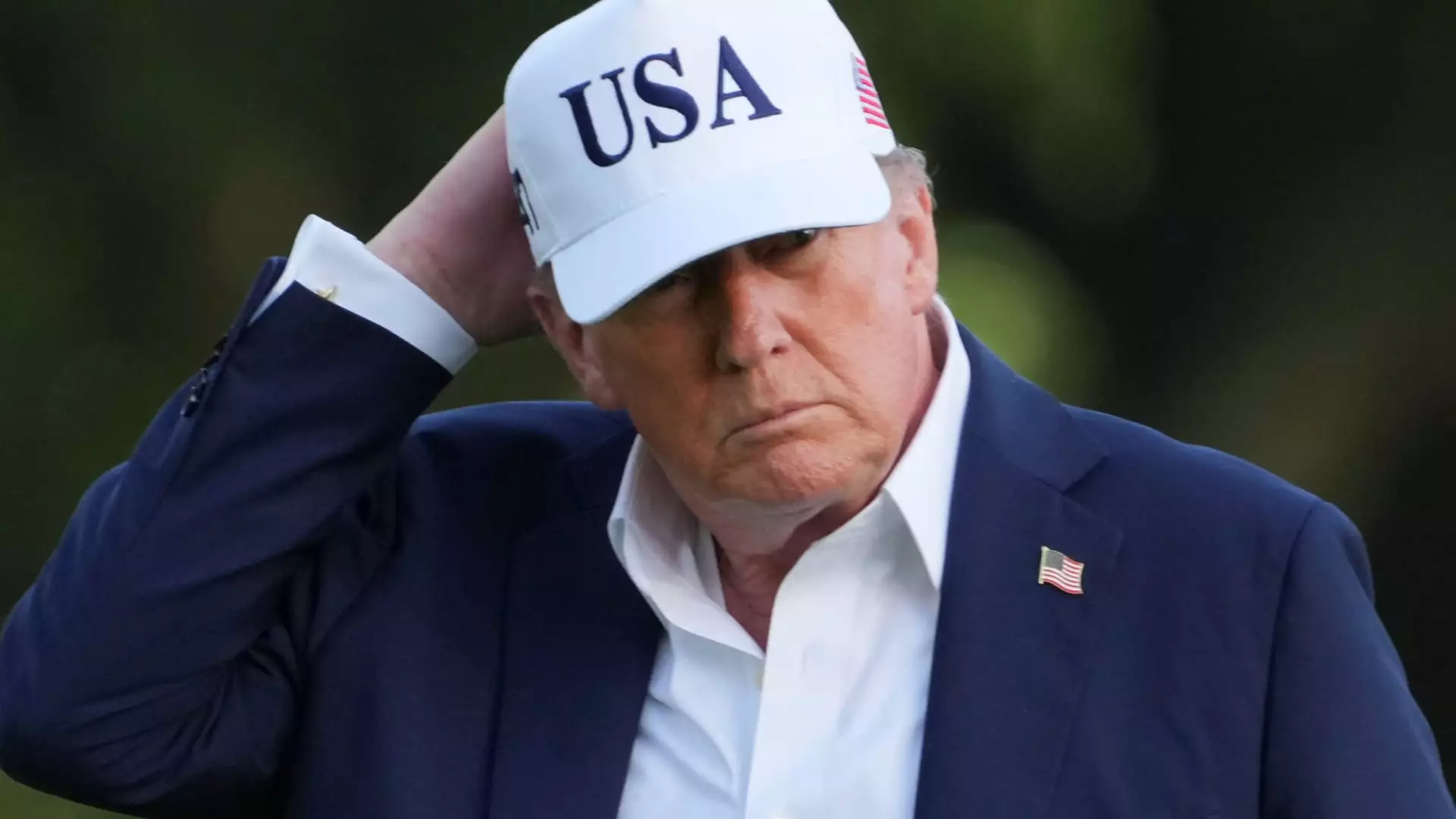In recent months, the United States government has embarked on a path that risks undermining the very foundations of global trade stability. By imposing 25% tariffs on imports from Japan and South Korea, the U.S. signals a retreat from cooperative international economic policies toward a more aggressive, unilateral approach. These tariffs, announced amidst market turmoil, exemplify an approach that prioritizes short-term leverage over long-term economic health. While the intention may be to rectify perceived trade imbalances, the strategy neglects the complex realities of modern global economics and the nuanced relationship the U.S. must maintain with its allies.
The Flawed Assumption: Trade Deficits as a Universal Evil
Central to this abrupt tariff imposition is the assumption that high trade deficits undermine national interests. President Trump’s framing of these deficits as evidence that other nations are exploiting the U.S. ignores a broader economic perspective. Trade deficits are often misinterpreted as inherently negative; however, they can also reflect strong consumer demand and investment opportunities. Viewing deficits as a problem to be “corrected” through punitive tariffs oversimplifies the interconnectedness of global markets and risks damaging diplomatic relations. This perspective fails to recognize that equitable economic growth often requires balancing trade policies with investment in domestic industries rather than initiating measures that could backfire.
The Risks of Escalating Trade Tensions
The move to reimpose harsh tariffs amid market instability reveals a shortsightedness that threatens economic stability. Stock markets responded negatively, with sharp declines in major indices—a warning sign that the strategy is not only economically risky but also politically destabilizing. The messaging contained within the formal letters warns Japan and South Korea against retaliatory tariffs, yet such threats risk spiraling into a cycle of tit-for-tat measures. Retaliation from allies might lead to reduced exports, higher prices for consumers, and a rise in global economic uncertainty. Far from protecting American workers, these policies risk igniting a trade war that could have lasting repercussions beyond the immediate economic fallout.
Global Supply Chains and the Myth of Tariff Evasion
The administration’s claim that goods being transshipped through third countries to evade tariffs are a significant concern highlights a fundamental misunderstanding of global supply chains. While customs enforcement and anti-evasion measures are necessary, framing transhipping as a major threat may exaggerate its prevalence or impact. This approach ignores the fact that supply chains have become inherently complex, and such practices are often a symptom of larger systemic issues—such as overly restrictive tariffs—not the root cause. Emphasizing punitive measures rather than diplomatic engagement undermines the collaborative efforts needed to address these challenges effectively.
The Ethical Dilemma of Power Politics and Global Leadership
Adopting a confrontational stance on trade confronts the United States with a fundamental ethical dilemma. As the world’s most influential economy, the U.S. bears the responsibility of leading by example—not through coercion or threats, but through fostering fair, sustainable trade agreements. The unilateral tariffs reflect a shift toward a zero-sum mindset that disregards the benefits of multilateral cooperation. If the goal is to create a more equitable trade environment, the focus should be placed on strategic diplomacy and mutual respect—values that often feel sidelined in the current approach. The risk is that, by positioning itself as an uncompromising enforcer, the U.S. sacrifices its reputation as a global leader committed to shared prosperity.
A Center-Left Perspective: Balancing National Interests with Global Responsibility
From a center-wing liberal vantage point, these tariffs are a misguided response. They threaten to undermine our relationships with key allies, weaken international institutions, and stoke unnecessary economic conflict. Instead of reflexively resorting to tariffs, the U.S. should prioritize multilateral dialogue, enforce existing trade agreements, and support domestic industries through targeted investments rather than punitive trade measures. The challenge lies in balancing national economic interests with the broader responsibilities of global citizenship—an approach rooted in cooperation and mutual growth, not protectionism and aggression. We preserve our economic stability not by alienating allies but by engaging with them constructively, fostering diplomacy over divisiveness.


Leave a Reply